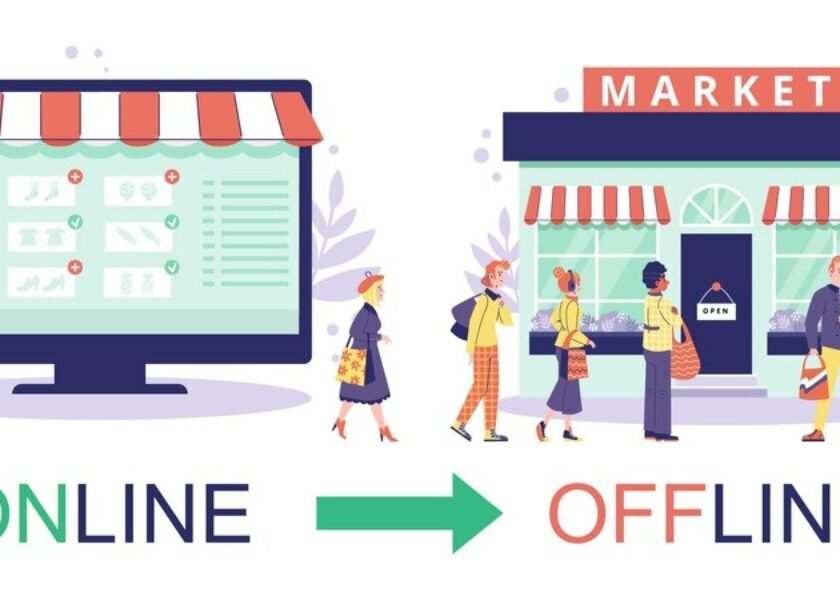Buying and selling online is referred to as e-commerce (an acronym for electronic commerce), which is continuously exploding with zero signs of slowing down. This evolution has made more and more consumers turn from the traditional market to shopping online which is however great news for customers with fierce competition from the suppliers. Whether you’re selling physical products like clothing, and gadgets or digital products like ebooks, templates etc. It can be challenging to stand out in such a crowded market but an e-commerce niche can help to streamline the business as a complete beginner too.
Over the years, it has been proven that the foundation of a profitable business lies in identifying your target audience and developing a strategic approach to marketing and sales which can then lead to domination
In this guide, we’ll explore strategies for mastering the ecommerce niche and dominating sales of physical and digital products online.
What is an Ecommerce Niche?
An Ecommerce niche is a segment of a product or service in the market, example include fashion, home improvements etc. An ecommerce niche can be illustrated as a product or service category which is broken down into
- primary niche
- secondary niche
- Tertiary niche
Primary Niche
This is the smallest of the smallest segment of a product or service which you can buy or sell online, they include a small number of physical products (in hundreds) under them for example belts, phone stands, laptop chargers, sunglasses, wallets, handbags etc.
Secondary niche
This is the combination of one or two primary niches, it expands with several products (in thousands) than the primary niche. An example is men’s fashion, Smartphones, bags etc
Tertiary niche
This is very complex (way bigger than the secondary niche), it expands into millions of products and services for example Fashion, Home and Office
What to Consider in an Ecommerce Niche?
An Ecommerce niche is very important to the success of any online store, most times the goal while starting or scaling any online store is to either
Niching up: This is when you expand or enlarge the product or service you are offering, this happens at the stage when you are scaling up your online store for example Amazon starting as an online store for bookkeeping to ebook and publishing
Niching down: this happens when you reduce the scope of the product or service you are offering, it remains a viable option while starting an online store
Why is the ecommerce niche very important?
Ecommerce Niche is very important to the success of buying and selling online irrespective of the product or service because it helps in the following
a. simplify the market: in a crowded or highly dense market, the most ideal solution is to be different is guaranteed when the business is in a particular niche. From understanding the product to a targeted customer base to a streamlined sales process which can increase the ROI, here is a particular scenario which is very relatable.
In a market where everybody is selling laptops, two individual stores opened. One decided to sell laptop accessories and the other decided to sell laptops because of the demand. Please who amongst the two will have a higher success rate in the next 3 years (obviously the one selling laptops has a lower gap in the market compared to the one selling accessories because he can easily pick on customers selling laptops down the line if he expands to selling laptops compared to the other seller)
b. gives you a unique position: The position a niche gives you as an online store buying and selling online is exceptional, and the identity it poses to every sort of user is amazingly for example just as you have Google to search for anything, what are your feelings as a user?
c. Optimum Result with minimum capital: a business in a specified niche gives you optimum result with little or no capital just as an Online Business room goal is to serve, train and consult people on various ways to make people understand setting or scaling a business online
How does one stand out with an Ecommerce Niche?
There are several niches when you consider ecommerce (buying and selling online), the most profitable ecommerce niches are based on demand, location and problems. Understanding the ecommerce niche helps you solve the following problems
Identifies Your Target Audience
One of the most critical steps in mastering the ecommerce niche is identifying your target audience. Before you can develop effective marketing and sales strategies, you need to understand who your ideal customers are and what they’re looking for. Here are some key factors to consider when defining your target audience:
- Demographics: Consider factors like age, gender, income, education, and location. Knowing these details can help you tailor your marketing messages to resonate with your target audience.
- Interests: Think about what your target audience likes to do in their free time, what types of content they engage with online, and what problems they’re trying to solve.
- Pain points: What challenges does your target audience face, and how can your products help them overcome these challenges?
- Buyer personas: Develop detailed buyer personas that represent your ideal customers. This will help you create more targeted marketing messages and product offerings.
By taking the time to identify your target audience, you can create a more effective ecommerce strategy that speaks directly to your ideal customers.
Optimizing Your Website for Sales
Once you’ve defined your target audience, it’s time to optimize your website for sales. Your website is the hub of your ecommerce business, and it’s essential to make sure it’s designed to convert visitors into customers. Here are some tips for optimizing your website:
- User experience: Make sure your website is easy to navigate and use. This includes things like clear calls-to-action, simple checkout processes, and intuitive product categories.
- Mobile optimization: More and more consumers are shopping on their mobile devices, so it’s crucial to make sure your website is optimized for mobile users.
- Search engine optimization (SEO): Optimize your website for search engines to improve your visibility in search results. This includes things like keyword research, meta descriptions, and alt tags for images.
- Product descriptions: Write clear and compelling product descriptions that highlight the benefits of your products and answer any potential questions your customers may have.
- Social proof: Include customer reviews and testimonials on your website to build trust with potential customers.
By optimizing your website for sales, you can create a more streamlined and effective shopping experience for your customers.
Standing Out in a Crowded Market
In a crowded ecommerce market, it can be challenging to stand out and differentiate yourself from your competitors. Here are some strategies for standing out in a crowded market:
- Unique value proposition: Develop a clear and compelling value proposition that sets you apart from your competitors. This could include things like unique product offerings, superior customer service, or fast shipping times.
- Niche focus: Consider focusing on a specific niche or product category to differentiate yourself from broader ecommerce retailers.
- Branding: Develop a strong brand identity that resonates with your target audience. This includes things like your logo, colour scheme, and brand voice.
- Content marketing: Develop a content marketing strategy that includes blog posts, social media content, and email newsletters to build brand awareness and engage with your target audience.
- Influencer marketing: Partner with influencers in your niche to promote your products and reach a wider audience.
By implementing these strategies, you can differentiate yourself from your competitors and build a loyal customer base in the ecommerce niche.





